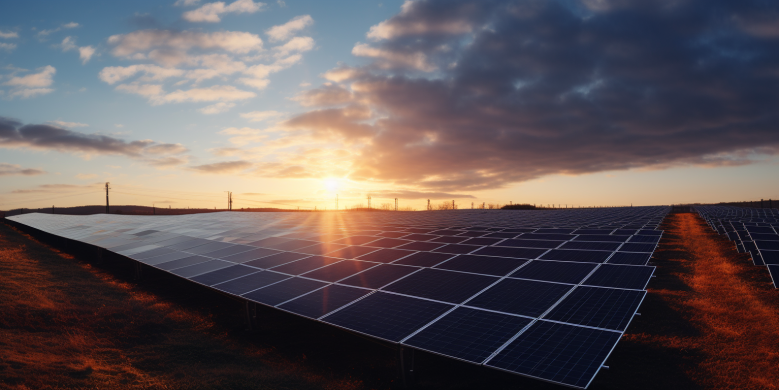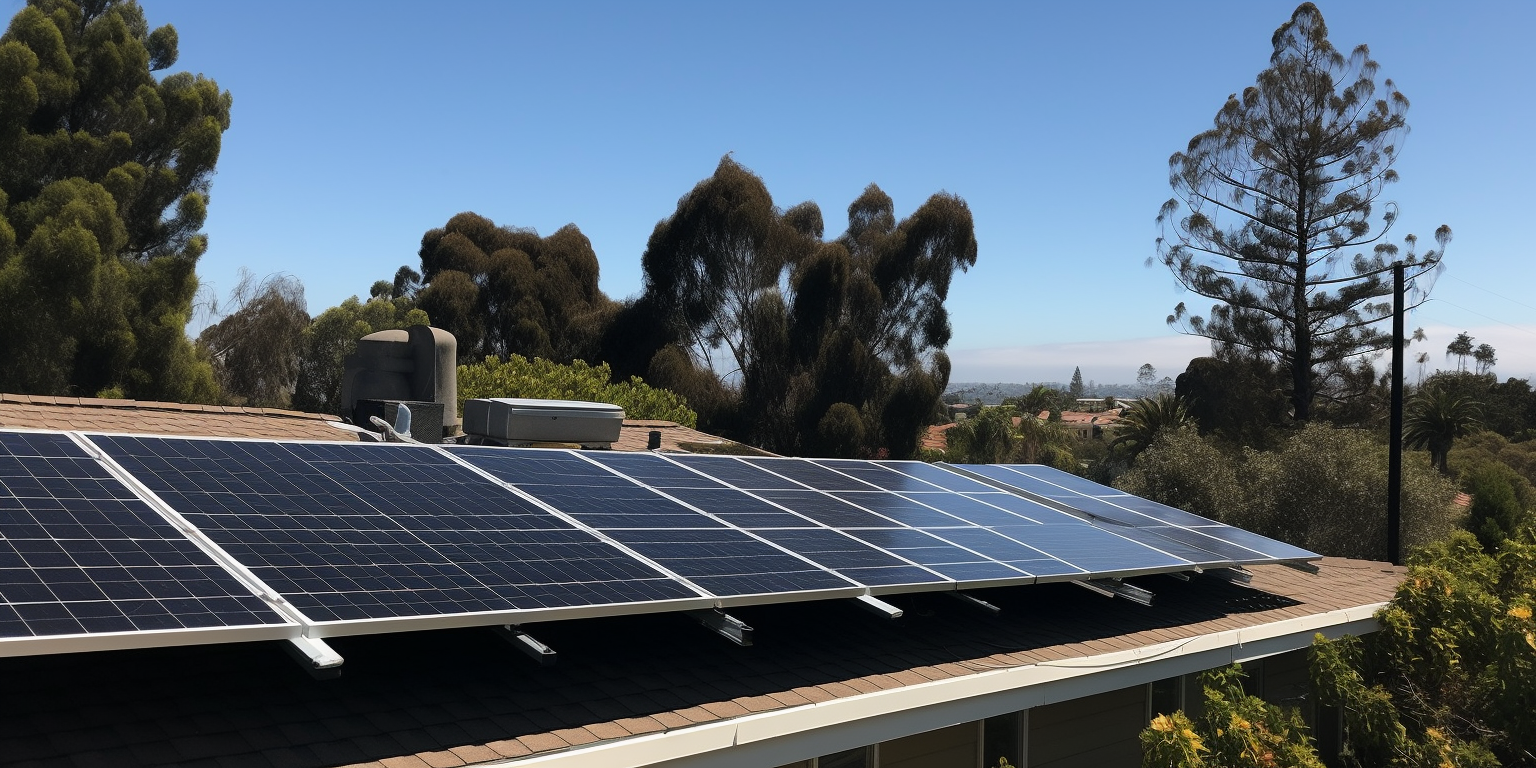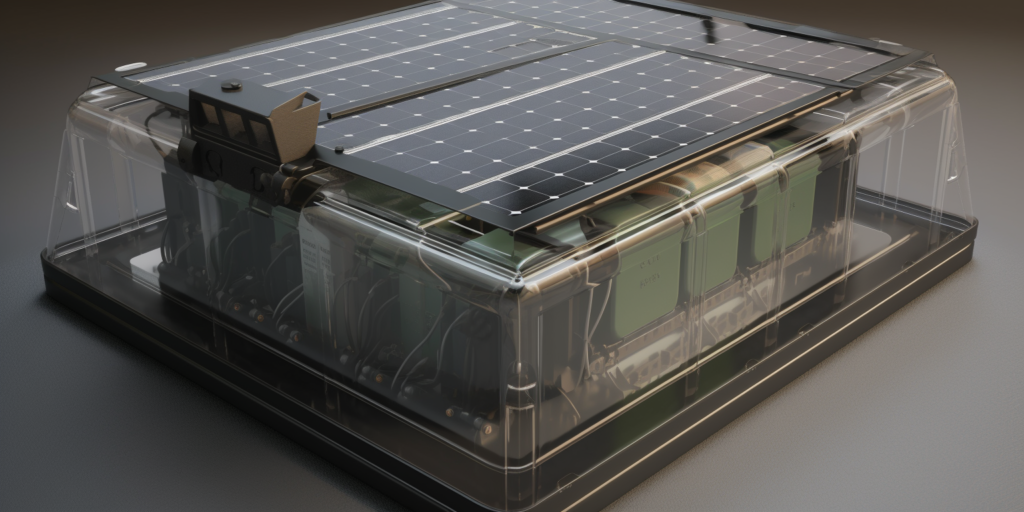
NOLA Solar Power
Schedule YourFree Consultation
Solar Batteries
Imagine waking up to the gentle kiss of sunlight, not just as a cue for a new day but as a source of power for your home. That’s right, you can harness the sun’s energy, and the wonder of solar batteries makes this possible. You’ve probably heard about renewable energy, but do you know how it’s stored and used? In this article, we’ll delve into the world of solar batteries – the unsung heroes of renewable energy. We’ll explore how these energy accumulators work, their benefits, and how to choose the right one for your needs. We’ll also guide you on integrating a battery into a self-sufficient power system. So, if you’re looking to understand more about sustainable living and reducing your carbon footprint, you’re in the right place. Let’s illuminate your knowledge of this game-changing, sustainable technology.

Key Takeaways

- Solar batteries store energy generated by solar panels.
- They provide energy during periods of low sunlight.
- Choosing the right solar battery leads to savings and an environmentally friendly lifestyle.
- Regular maintenance extends battery lifespan.
Understanding the Basics of Renewable Energy Storage
Understanding the basics of renewable energy storage is crucial in comprehending the potential of solar batteries. These batteries play a vital role in harnessing the power of the sun and storing the energy generated by solar panels. This stored energy becomes particularly useful during periods of low sunlight, such as at night or on cloudy days. One common concern regarding solar batteries is their lifespan. On average, solar batteries last between 5 and 15 years. However, with proper maintenance, this lifespan can be extended. Regular maintenance and care can help maximize the longevity of these batteries, ensuring they continue to provide reliable energy storage for longer periods. When it comes to disposing of solar batteries, it’s important to follow proper procedures. Simply tossing them in the trash is not an option. Instead, it is recommended to recycle them at a certified recycling facility. By doing so, you are not only making the most of renewable energy but also taking responsibility for the proper disposal of these batteries, minimizing their impact on the environment.

The Mechanics Behind Energy Accumulators

Energy accumulators, these magnificent powerhouses, collect and store an insane amount of energy for later use. It’s as if magic is at work. You might be wondering how this process works. Well, it’s not as complex as you might think. Firstly, all energy accumulators, regardless of type, absorb energy from a source and store it. Secondly, they keep this stored energy until it’s needed. Finally, they convert the stored energy into a usable form when required. Now, accumulator types vary greatly, with each having different characteristics. Some might have an extensive battery lifespan, while others might be more efficient in charging and discharging. So, when choosing a solar battery, it’s crucial to consider these factors. It’s your green energy future we’re talking about here!
Advantages of Having an Energy Storage System
Having an energy storage system in your home is like owning a magic box that powers up your life, and the perks are pretty fantastic! Imagine reducing your electric bill significantly or even erasing it entirely. That’s one of the financial benefits you’ll enjoy. You’ll also have a reliable power source during blackouts. Beyond your pocketbook, you’ll be making a positive environmental impact. You’re using clean, renewable energy from the sun, which reduces your carbon footprint. It’s a small, practical step towards combating climate change. Plus, you’re lessening the demand on the grid, especially during peak times. In short, going solar with a battery system isn’t just a smart move for your household. It’s also a responsible choice for our planet.

Choosing the Right Storage for Your Needs

Choosing the right storage for your needs can be a challenging task, but the benefits are well worth the effort. Consider the following factors to help guide your decision:
- Battery Lifespan: Not all solar batteries are created equal. Take into account the lifespan of the battery and how long it will meet your energy needs.
- Cost Effectiveness Analysis: It is important to weigh the cost of the battery against its performance and longevity. Consider the long-term savings and return on investment.
- Energy Needs: Understanding your home’s energy consumption is key. This information will help determine the appropriate size and capacity of your battery.
- Warranty: A good warranty not only ensures the quality of the product but also provides peace of mind. Look for a warranty that covers a reasonable period of time.
Remember, choosing the right solar battery can lead to significant savings and a more environmentally friendly lifestyle.
Incorporating a Battery into a Self-Sufficient Power System
When you’re ready to embark on a journey towards energy independence, incorporating a battery into your self-sufficient power system can be a game-changer. You’re no longer at the mercy of fluctuating energy prices, and you’re doing your bit for the environment too. Now, it’s important to consider the battery lifespan. Most solar batteries will last between 5 and 15 years, so plan for eventual replacement. Also, remember that how often you discharge your battery will affect its lifespan. Next up, installation challenges. It isn’t just about hooking up a few wires. You need to ensure safety, compatibility with your solar panels, and adequate space. It’s often best to leave this to professionals. However, once overcome, these challenges pave the way for a more sustainable, self-sufficient living.
